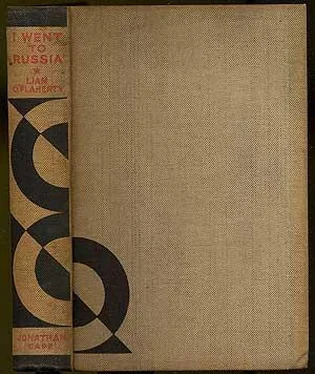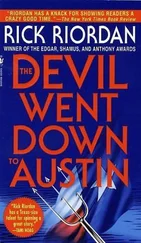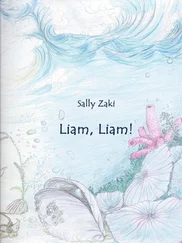The doctor came up and drew me aside and said in an excited fashion:
‘Very strong Communist Party in Odda. Perhaps we make good propaganda here.’
He pointed to the factories and said:
‘Very good. Very beautiful. Factories very good for Communism. The machines, it is effected so, that they create proletariat. Very good. Then great dynamic energy becomes. Wonderful. Yes?’
‘It is strange,’ I thought, ‘that the Norsemen once had a new idea which sent them out to ravage the earth; some dynamic force that drove them to conquest. Now they are pacifist and the Russians have that spirit in turn.’
When we went ashore during the afternoon, I was convinced that the Norsemen had lost whatever dynamic force they ever possessed. Nothing could be more dull than the town, or more bovine than its inhabitants. The houses were neat, well-built, exquisitely clean. There were signs of prosperity everywhere. All the appliances of modern civilisation were in evidence, electricity, telephones, motor cars. In the shops I saw all the latest products of American industry. The people were healthy and of fine physique. They were excessively polite in manner, calm, orderly, industrious. Yet they repelled me. I saw not a sign of the Viking spirit in their faces; nothing but placidity and stagnation. It seemed that they were robots, manufactured on the latest model of pacifism, hygiene and efficiency. In the cafés I found strong, silent, young men drinking large tumblers of hygienic milk, while gramophones, manipulated by hygienic young women, played sentimental jazz tunes of American origin. When I asked for beer I was given a poisonous concoction. When I asked for food the result was still worse. Rarely have I been offered less appetising garbage, cooked and served in a truly barbarous fashion.
The Russians looked odd beside the Norwegians. And although the Norwegians had a melancholy effect on me, because they had lost the fierce grandeur of their ancestors, I still felt akin to them and hostile towards the hairy Russians who were not of my blood. These latter looked unkempt, lean, inquisitive, out of place, a horde of prowlers. In their company I felt the snobbish shame one feels in the company of a disreputable person. What was it to me that the ancient Norsemen were probably as disreputable as these Russians when they began their career of plunder? Neither did it interest me that the Russian expansion had for its stated objective the creation of a great world civilisation.
A machine civilisation such as the Russians sought lay before me in the town and it was abhorrent to my senses. Why should I want to destroy the calm beauty of English villages in order to create a senseless ugliness such as this? Why should I want to destroy French culture, where the delicacies of the table and of the boudoir are considered of greater importance than this speechless worship of tinned food, canned music, standarised morality?
Out upon the Russians and their ambitions.
They made no secret of their contempt for the Norwegians. I was indignant at the greedy way they looked at the factories, the motor cars and the shops that contained the products of European and American machine-labour, as if to say: ‘All this shall be ours by conquest or by subtlety.’
They obviously regarded themselves, not as friendly traders but as scouts, seeking information for conquering armies that were to follow them. Their laughter, their exuberance, their energy did not hide their uncouthness and their lack of individual beauty. They were a herd, with a mass consciousness of a religious idea that was to send them careering, tails up, bellowing, into the rich towns of Europe, to pillage ancient store rooms that are full to bursting point with rich treasure.
Sadly I stole away from them and wandered up into the mountains. I had not far to go. No sooner had I left the outskirts of the town than the mammoth sides of the mountains hid from sight the factories and the ships. They drowned the strident noises of the machines. All signs of machine life disappeared. The earth regained its mystic power and its atmosphere of unchangeability. There was utter silence. There was snow and smooth rocks that had been trodden by the feet of ancient, hide-wearing men, toothy savages whose gods were sounds and the flashing rage of nature, seas in triumph, cloud bursts, avalanches of snow, icebergs in movement, the terror of mountain shadows.
The earth’s power drugged my intellect, so that I laughed at the foolish social philosophies of the Bolsheviks and saw that they were but the superstitions of savages to glorify the lust of conquest. It was the same lust that had driven the Norse pirates over the sea.
Here brutal nature, by her sinister silence, brought vividly to my mind the realisation that human life is governed by the same ruthless competition and brazen anarchy which governs the growth of nature. Plant wars with plant, insect with insect, animal with animal. The elements destroy life with the same power that generates and feeds life. All is in continual movement, ever-changing, blindly moving, being born, flowering, dying, from a miraculous beginning to an un-explainable end, beautiful only in movement, incomprehensible in purpose.
So are man’s ambitious movements incomprehensible and without purpose when examined by reason. Each successive culture crumbles into ruin and desolation spreads over the sites of his proud cities. His gods are forgotten. His works of art become dust. His philosophies and religions become a gibberish, unintelligible to his descendants. His music becomes the moaning of the rough winds. Hordes of ants march over battlefields, where his armies, with their banners, passed to victory.
I saw the Bolshevik god as a wooden dummy like the rest, of no nobler quality than the fetishes which the Chinese and the Egyptians and the Assyrians and the Greeks and the Aztecs and the Romans carried into the strong places of their enemies. Born in the hungry bellies of the Bolshevik masses, he would die when those bellies were full to repletion, just as Odin and Thor died when the Norse conquerors were glutted with loot. Loot! Loot! Man appeared no whit more divine than the foraging ants, which gnaw their way across continents, leaving desolation in their trail.
But I grew lonely as I reasoned thus, sitting on an old stone by a mountain torrent. For he who detaches himself from the herd of his human brothers and regards their movements as insanity is more insane than they. It is good at times to retire unto the heights and look down with sorrow on the futility of man’s activity. But it is folly to stay on the heights. The scoffer and the sceptic are sour and useless citizens, esteemed only by decadents and invalids. For they who effect a harmony between their reason and their actions lose the power to create beauty. All things appear equally futile when examined by reason. But the young and vigorous wisely sneer at reason.
On the mountain it became manifest to me that the realisation of the Bolshevik idea was impossible, that it was impossible to organise all mankind in one society where all should be equal, free from care, famine, disease, vice, personal ambition, war. It appeared as childish as the attempt to realise the ideal of Christianity. But it also became manifest to me that all the beauty which man has created in his career had been the outcome of attempts to achieve similar impossible ideals. And although Christianity has been a failure, although its ideal of peace and brotherly love has brought war and hatred and although it has ended in hypocrisy, disillusion and decadence, no man but an unthinking boor will refuse to admit that magnificent achievements have resulted from the attempt to realise it.
In the same manner the Bolshevik god may scatter lavish beauties in the path of his conquest.
Читать дальше












